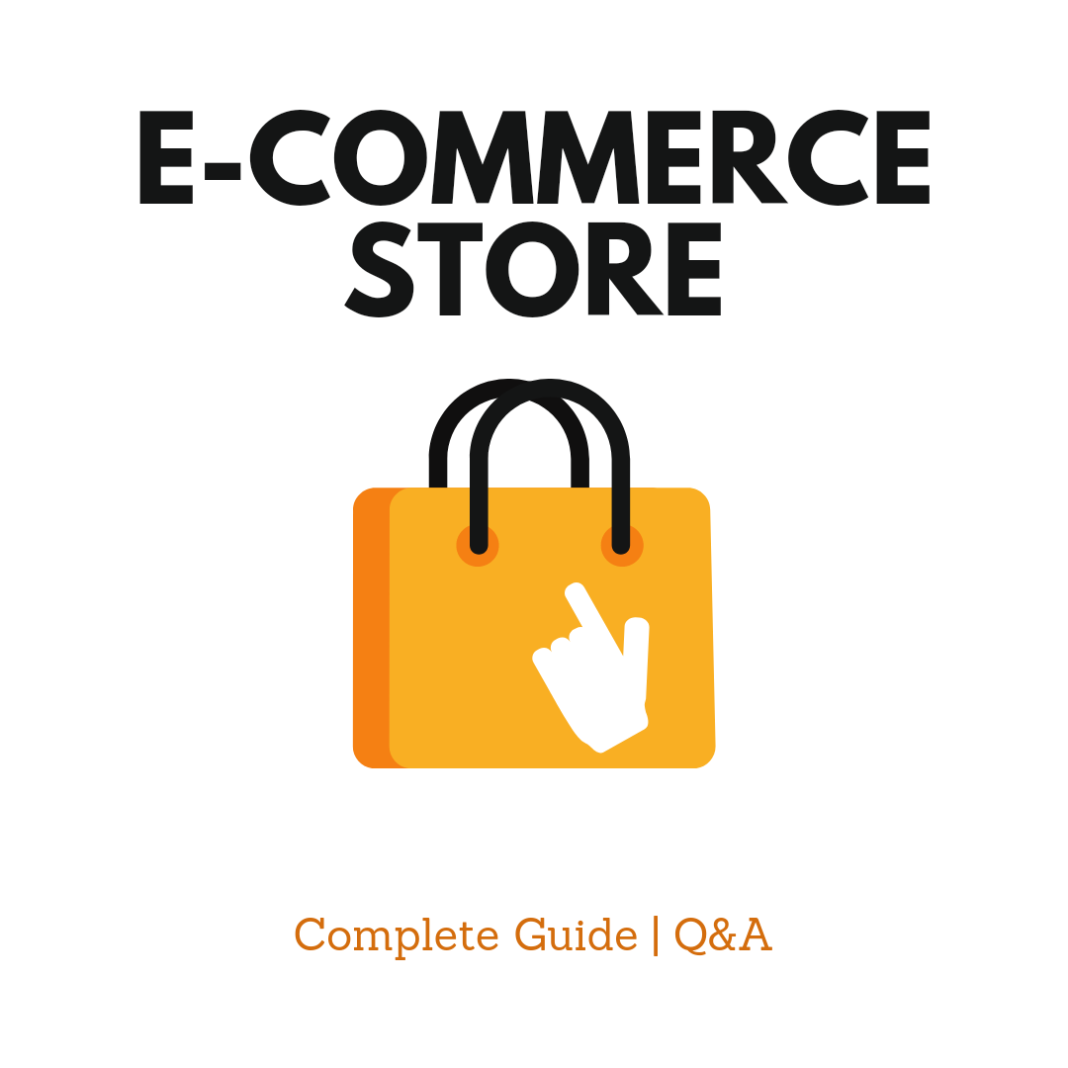In recent years, the e-commerce industry has experienced exponential growth, eCommerce as a Career that’s why is good, driven by the increasing number of people who shop online.
This trend has created numerous career opportunities for individuals interested in pursuing a career in e-commerce. In this article, we will discuss the opportunities and benefits of choosing eCommerce as a career.
Table of Contents
Is e-commerce a good career?
Yes, e-commerce can be a good career choice for individuals who are interested in the industry and have the necessary skills and qualifications. eCommerce is a rapidly growing industry with a projected global market size of $6.5 trillion by 2023, and it offers a wide range of career opportunities across different fields such as marketing, logistics, technology, and customer service.
eCommerce jobs also often come with competitive salaries and benefits, and the industry values skill development and career growth.
Additionally, the flexibility offered by many e-commerce jobs, including the ability to work remotely, can be appealing to individuals who prefer a work-life balance.
Ultimately, whether e-commerce is a good career choice for a particular individual will depend on their interests, skills, and goals, but for those who are interested in the industry, eCommerce can be a fulfilling and lucrative career path.
Does e-commerce have future?
Yes, e-commerce is expected to have a bright future due to its ongoing growth and increasing popularity. The COVID-19 pandemic has accelerated the shift towards online shopping, and many consumers have become accustomed to the convenience and accessibility of eCommerce.
According to Statista, global e-commerce sales are projected to reach $6.5 trillion by 2023, up from $4.2 trillion in 2020. Ecommerce companies are also innovating with new technologies such as augmented reality, virtual reality, and artificial intelligence to enhance the online shopping experience and increase sales.
Furthermore, the expansion of mobile commerce and the increasing use of social media for shopping are likely to drive further growth in the eCommerce industry.
Therefore, it can be concluded that e-commerce has a promising future and is expected to continue to be a significant part of the retail industry.
Why is e-commerce so successful?
E-commerce has become so successful due to a number of factors, including:
- Convenience: E-commerce allows consumers to shop from the comfort of their own homes or on-the-go, 24/7, without the need to physically visit a store.
- Access to a wider audience: E-commerce businesses can reach a global audience, allowing them to sell to customers beyond their local area.
- Lower overhead costs: eCommerce businesses do not need to invest in a physical storefront, which can significantly reduce their overhead costs.
- Ability to personalize the shopping experience: E-commerce platforms can use data and analytics to personalize the shopping experience for each individual customer, which can lead to increased customer loyalty and sales.
- Increased competition: The rise of eCommerce has increased competition, forcing businesses to innovate and provide better products and services to stay competitive.
- Improved technology: Advancements in technology, such as faster internet speeds and mobile devices, have made online shopping easier and more accessible for consumers.
- Strong logistics and supply chain management: E-commerce businesses rely heavily on their logistics and supply chain management, ensuring that products are delivered quickly and efficiently, which can lead to increased customer satisfaction.
Overall, e-commerce has become so successful due to its ability to offer convenience, access to a wider audience, lower costs, personalization, increased competition, improved technology, and strong logistics and supply chain management. These factors have all contributed to the ongoing growth and success of the e-commerce industry.
Do Ecommerce jobs pay well?
E-commerce jobs can pay well, particularly those that require specialized skills and experience. Salaries in eCommerce can vary depending on the role, company, location, and level of experience, among other factors. However, in general, e-commerce jobs tend to pay competitive salaries due to the high demand for skilled professionals in the industry.
According to data from Glassdoor, the average base salary for an eCommerce manager in the United States is around $78,000 per year, while a senior software engineer in eCommerce can earn an average base salary of around $130,000 per year.
Similarly, a digital marketing manager in e-commerce can earn an average base salary of around $87,000 per year, and an eCommerce operations manager can earn an average base salary of around $76,000 per year. Additionally, e-commerce companies may offer other benefits such as health insurance, retirement plans, and stock options.
Therefore, for individuals who possess the necessary skills and experience, eCommerce jobs can be a lucrative career choice.
How much do e commerce make?
The amount of money that eCommerce makes can vary widely depending on the specific business, industry, and other factors such as size, location, and business model.
Some e-commerce businesses can generate significant revenue, while others may struggle to break even. According to Statista, the global eCommerce market size was estimated to be $4.28 trillion in 2020, and it is projected to grow to $6.5 trillion by 2023.
However, the revenue of a particular e-commerce business will depend on factors such as the type of products or services offered, the size of the market, the level of competition, and the effectiveness of the company’s marketing and sales strategies.
Additionally, e-commerce businesses may have different profit margins and overhead costs, which can affect their overall profitability. Therefore, it is difficult to provide a precise answer to the question of how much eCommerce makes, as it can vary widely depending on the specific circumstances of each business.
Opportunities and Benefits:
E-commerce encompasses the buying and selling of products and services online, including everything from online marketplaces and retailers to social media platforms and mobile apps.
The industry is rapidly expanding, with a projected global market size of $6.5 trillion by 2023. As a result, eCommerce offers a wide range of career opportunities across different fields, including marketing, logistics, technology, and customer service.
One of the most significant benefits of pursuing a career in e-commerce is the flexibility it offers. Many e-commerce jobs can be performed remotely, allowing individuals to work from anywhere in the world with an internet connection. This flexibility is especially appealing to those who prefer a work-life balance and want to avoid commuting to an office every day.
Another advantage of working in eCommerce is the potential for career growth. E-commerce is a rapidly evolving industry, and there is always room for individuals to grow and develop their skills. For example, a marketing coordinator can progress to become a marketing manager, and eventually, a chief marketing officer. E-commerce companies often prioritize promoting from within, offering employees a clear path for career advancement.
In addition to career growth, e-commerce jobs often come with competitive salaries and benefits. Due to the high demand for skilled e-commerce professionals, companies are willing to pay top dollar to attract and retain top talent. Furthermore, eCommerce companies often offer attractive perks, such as flexible schedules, health insurance, and retirement benefits.
Some of the most popular career paths in e-commerce include:
- E-commerce Marketing: This involves developing and executing marketing strategies to promote products and services online. This can include search engine optimization (SEO), social media marketing, email marketing, and paid advertising.
- E-commerce Merchandising: This involves selecting and presenting products for sale on an eCommerce platform. This can include product descriptions, images, and pricing.
- E-commerce Operations: This involves managing the logistics of an ecommerce platform, including inventory management, order fulfillment, and shipping.
- E-commerce Technology: This involves developing and maintaining the technology infrastructure of an eCommerce platform, including website development, mobile app development, and data analytics.
- E-commerce Customer Service: This involves managing customer inquiries and concerns, as well as providing excellent customer service to ensure customer satisfaction.
Is ecommerce still worth it 2023?
Yes, e-commerce is still worth it in 2023, and it is expected to continue to be a rapidly growing and dynamic industry. As technology continues to evolve, the eCommerce industry will continue to innovate and adapt to changing consumer needs and preferences. The COVID-19 pandemic has also accelerated the shift towards online shopping, and this trend is expected to continue in the future.
According to a report by eMarketer, global e commerce sales are projected to reach $6.5 trillion by 2023, up from $4.2 trillion in 2020.
Additionally, the growth of mobile commerce, the increasing use of social media for shopping, and the adoption of new technologies such as augmented reality, virtual reality, and artificial intelligence are likely to further fuel the growth of the e-commerce industry.
Therefore, e-commerce is still a worthwhile investment in 2023 and beyond, and it offers a wide range of opportunities for businesses, entrepreneurs, and job seekers.
How can I start e-commerce business?
Starting an e-commerce business can seem daunting, but with careful planning and execution, it is possible to launch a successful venture. Here are some steps to consider when starting an eCommerce business:
- Choose a niche: Decide on a product or service niche that you are passionate about and that has market potential.
- Conduct market research: Conduct market research to determine the demand for your product or service, identify your target audience, and assess the competition.
- Develop a business plan: Develop a detailed business plan that outlines your mission, goals, target market, marketing strategies, financial projections, and more.
- Choose a platform: Choose an e commerce platform that suits your business needs and budget, such as Shopify, Magento, or WooCommerce.
- Build a website: Build a website that is easy to navigate, visually appealing, and optimized for search engines.
- Develop a marketing strategy: Develop a marketing strategy that includes social media, search engine optimization (SEO), email marketing, and advertising to reach your target audience.
- Source suppliers: Find reliable suppliers and negotiate favorable terms for your product or service.
- Set up payment and shipping options: Set up payment and shipping options that are secure, fast, and convenient for your customers.
- Launch your business: Launch your e-commerce business and continue to monitor and adjust your strategies based on feedback and performance data.
Starting an e-commerce business requires hard work, dedication, and perseverance, but with a solid plan and execution, it can be a rewarding and profitable venture.
How much does e-commerce license cost in india?
In India, the cost of obtaining an e commerce license can vary depending on the type of license and the state where the business is located. However, it is important to note that there is no specific e-commerce license in India. E-commerce businesses are typically registered as a regular business entity, such as a sole proprietorship, partnership, LLP, or private limited company, and may require additional licenses or permits depending on the products or services they sell.
The cost of registering a business entity in India can vary depending on the state and type of entity, ranging from a few thousand rupees to several lakhs. Additionally, e-commerce businesses may need to obtain additional licenses or permits, such as a GST registration, FSSAI license for selling food items, drug license for selling medicines, and more, which can add to the total cost.
It is recommended to consult with a legal professional or chartered accountant to understand the specific requirements and costs for registering and obtaining licenses for an eCommerce business in India.
How do I start ecommerce with little money?
Starting an e-commerce business doesn’t necessarily require a large amount of capital. With a little creativity and smart planning, it’s possible to start an online store on a budget. Here are some tips on how to start an e-commerce business with little money:
- Choose a low-cost eCommerce platform: There are many low-cost or free eCommerce platforms available that can help you get started. For example, Shopify offers a 14-day free trial and plans starting at just $29 per month. WooCommerce is a free e-commerce plugin for WordPress that offers a range of customization options.
- Start with a small inventory: You don’t need to stock a large inventory of products to start an e-commerce business. Start with a small selection of products and gradually add more as your business grows. You can also consider dropshipping, which allows you to sell products without holding inventory.
- Use free or low-cost marketing strategies: Social media is a powerful tool for marketing your e-commerce business. You can create social media accounts for your business and use them to engage with your audience and promote your products. Email marketing is another cost-effective way to reach your target audience.
- Optimize your website for SEO: Search engine optimization (SEO) is the process of improving your website’s visibility in search engine results pages. By optimizing your website for SEO, you can attract more organic traffic to your site without spending money on advertising.
- Consider crowdfunding: Crowdfunding platforms like Kickstarter and Indiegogo can be a great way to raise money to start your eCommerce business. With a well-crafted campaign, you can raise funds from a community of supporters who believe in your vision.
Starting an e-commerce business with little money requires a bit of creativity and resourcefulness. By choosing a low-cost e commerce platform, starting with a small inventory, using free or low-cost marketing strategies, optimizing your website for SEO, and considering crowdfunding, you can start your e-commerce business on a budget.
Which e commerce platform is best?
There are several e-commerce platforms available, and each one has its strengths and weaknesses. Choosing the best platform depends on your specific needs, budget, and technical expertise. Here are some of the most popular eCommerce platforms:
- Shopify: Shopify is a popular e-commerce platform that offers an all-in-one solution for building an online store. It is easy to use and requires no technical skills. It offers a range of features, including mobile responsiveness, SEO optimization, and secure payment processing.
- WooCommerce: WooCommerce is a free, open-source e-commerce plugin for WordPress. It is easy to install and customize and offers a range of features, including a variety of payment gateways, shipping options, and extensions.
- Magento: Magento is a feature-rich eCommerce platform that offers powerful customization options. It is an open-source platform that requires technical skills to set up and maintain.
- BigCommerce: BigCommerce is a cloud-based e-commerce platform that offers an all-in-one solution for building an online store. It is easy to use and offers a range of features, including customizable themes, secure payment processing, and marketing tools.
- Wix: Wix is a website builder that also offers eCommerce capabilities. It is easy to use and offers a range of features, including customizable themes, secure payment processing, and marketing tools.
Ultimately, the best eCommerce platform for you will depend on your specific needs and goals. It’s important to do your research, compare features, and choose the platform that best fits your business.
Conclusion:
e-commerce offers numerous career opportunities across different fields, making it an appealing industry to pursue a career in. With its flexibility, potential for career growth, and competitive salaries and benefits, e-commerce is a great option for individuals looking for a fulfilling and lucrative career path.
Thanks for visiting our website and reading this article, if this article is informative for you then this is my pleasure…
If you have any other ideas, feel free to share them in the comments below.
If you need to reach more customer by using Facebook ad then you must need to read this article: Retargeting with Facebook Ads || How to Reach Your Target Audience? Easy Guide




